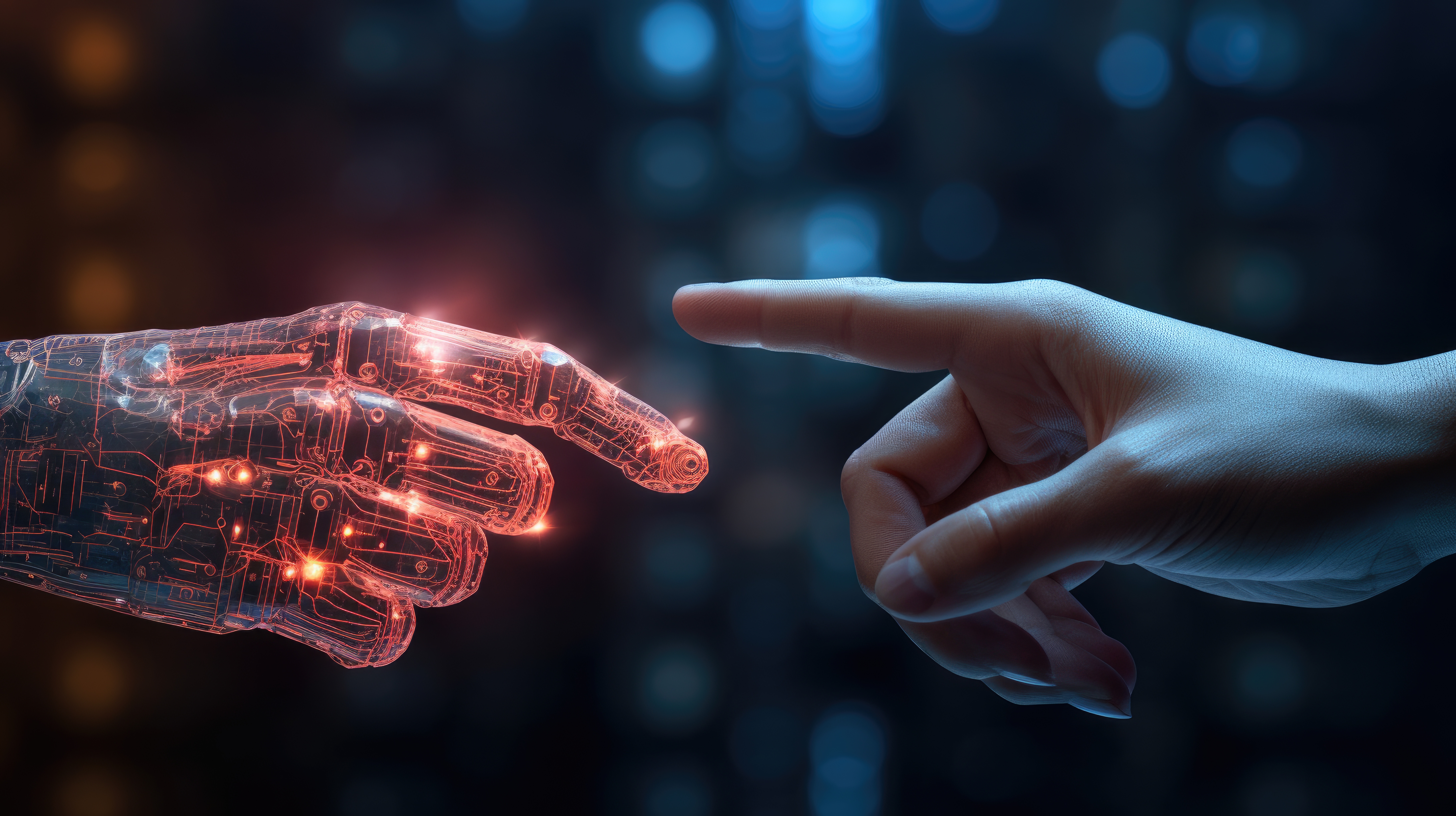AI’s Role in Career Transformation
November 8, 2023Artificial intelligence (AI) is no longer a futuristic concept; it's a reality that's already transforming how work is done. As AI technology continues to evolve, it offers seemingly infinite opportunities for growth, enhanced efficiencies, and improved customer experiences — all of which is reshaping various professions across different industries. Here’s a look at a few of the careers that AI is or may soon be revolutionizing.
Impact of AI on Healthcare Professionals
Perhaps more than any other industry, AI has made significant inroads in the healthcare sector. Radiologists are using AI to assist in interpreting medical images, leading to quicker and more accurate diagnoses. Doctors are using AI to analyze patient data to better understand and assess risk factors for various diseases. AI-powered chatbots are driving better patient engagement and telemedicine consultations, offering immediate support to patients in need. Looking ahead, AI is likely to play a more prominent role in drug discovery, treatment personalization, and predictive analytics to improve patient outcomes. On a broader scale, it will not only assist in individual diagnosis and treatment but also help in analyzing large amounts of medical data to identify trends and patterns across populations and geographic regions.
Impact of AI on Financial Analysts and Traders
AI-driven algorithms in market analysis and trading are having a significant impact on the finance industry. Quantitative analysts and traders leverage AI to analyze complex datasets and execute trades at incredible speeds, and businesses are using AI-driven insights to make more informed financial decisions. AI's predictive capabilities are instrumental in identifying market trends and minimizing risks. AI can already automate bookkeeping, auditing, and fraud detection, and it is expected to take on a more prominent role in investment strategies and portfolio management as AI technologies continue to develop.
Impact of AI on Retailers and E-commerce Distributors
In the retail industry, AI is offering personalized product recommendations, optimizing supply chains, and automating customer service through chatbots. Retailers use AI to analyze customer behavior, improve inventory management, and enhance the overall shopping experience. Soon, AI-powered virtual shopping experiences may become more common, which can reduce waste and costs through better inventory management.
Impact of AI on Legal Professionals
With lengthy and dense texts at its foundation, the legal industry has adopted AI-powered tools that can quickly scan and analyze vast legal documents, significantly improving research efficiency. Lawyers and legal professionals are also using AI to predict legal outcomes, support due diligence processes, and even automate some legal services to streamline processes without sacrificing quality.
Impact of AI on Transportation and Logistics Providers
Across transportation, AI is aiding in route optimization, driving autonomous vehicles, and scheduling predictive maintenance. Many delivery services now use AI algorithms to optimize routes and predict delivery times accurately. The rise of self-driving cars and drones is already revolutionizing the industry and, with its potential for widespread adoption, making it more efficient and safer through improved traffic flow and more efficient use of resources.
Impact of AI on Salespeople and Marketers
AI is turbocharging automation for sales and marketing tasks such as lead generation, email marketing, and social media marketing. It helps to personalize the customer experience and identify new sales opportunities, optimizing communication channels and focusing spending on the audiences, channels, and messages with the most potential for success. AI chatbots and virtual assistants — some of the earliest uses of AI in business — are becoming more widely used to provide immediate customer support. These digital tools can answer simple questions, resolve issues, and escalate complex cases to human agents.
Impact of AI on Manufacturing and Quality Controllers
In manufacturing, AI-powered robots and machine learning algorithms have been implemented to increase production efficiency and product quality. Robots can perform repetitive tasks with higher precision than people, while AI-driven quality control systems can detect defects in real-time. AI is also ushering excitement about the potential for more efficient automation in manufacturing that can enable the development of adaptive factories that aren’t limited to a single product or line.
Impact of AI on Scientists and Researchers
With its incredible computing power, AI has been a boon to researchers and scientists by analyzing large datasets, identifying patterns, and developing new hypotheses in a fraction of the time and costs required by humans. AI helps automate data collection and analysis, which is informing scientists to make more strategic decisions. For example, AI is helping farmers make data-driven decisions regarding planting, irrigation, and crop management. Drones equipped with AI can monitor crop health and identify areas that need attention, reducing waste and better protecting the environment.
With Its ability to analyze data quickly, automate tasks, and learn and adapt, it is unlikely that there is an industry that AI won’t touch — and potentially revolutionize. However, rather than replace whole careers en masse, AI is more likely to augment human capabilities and create new jobs that require skills like AI literacy, creativity, and problem-solving. As AI technology continues to advance, professionals and organizations need to adapt and embrace AI as a supportive tool, all while understanding and addressing the ethical considerations associated with AI integration.
Lead the Development of New Artificial Intelligence at Capitol Tech
Capitol Technology University’s programs in Computer Science, Artificial Intelligence and Data Science can prepare you to use artificial intelligence to transform how work is done. Pioneer groundbreaking new research with Capitol's MRes in Artificial Intelligence or become a global industry leader with our PhD in Artificial Intelligence. For more information, contact our Admissions team at admissions@captechu.edu.




